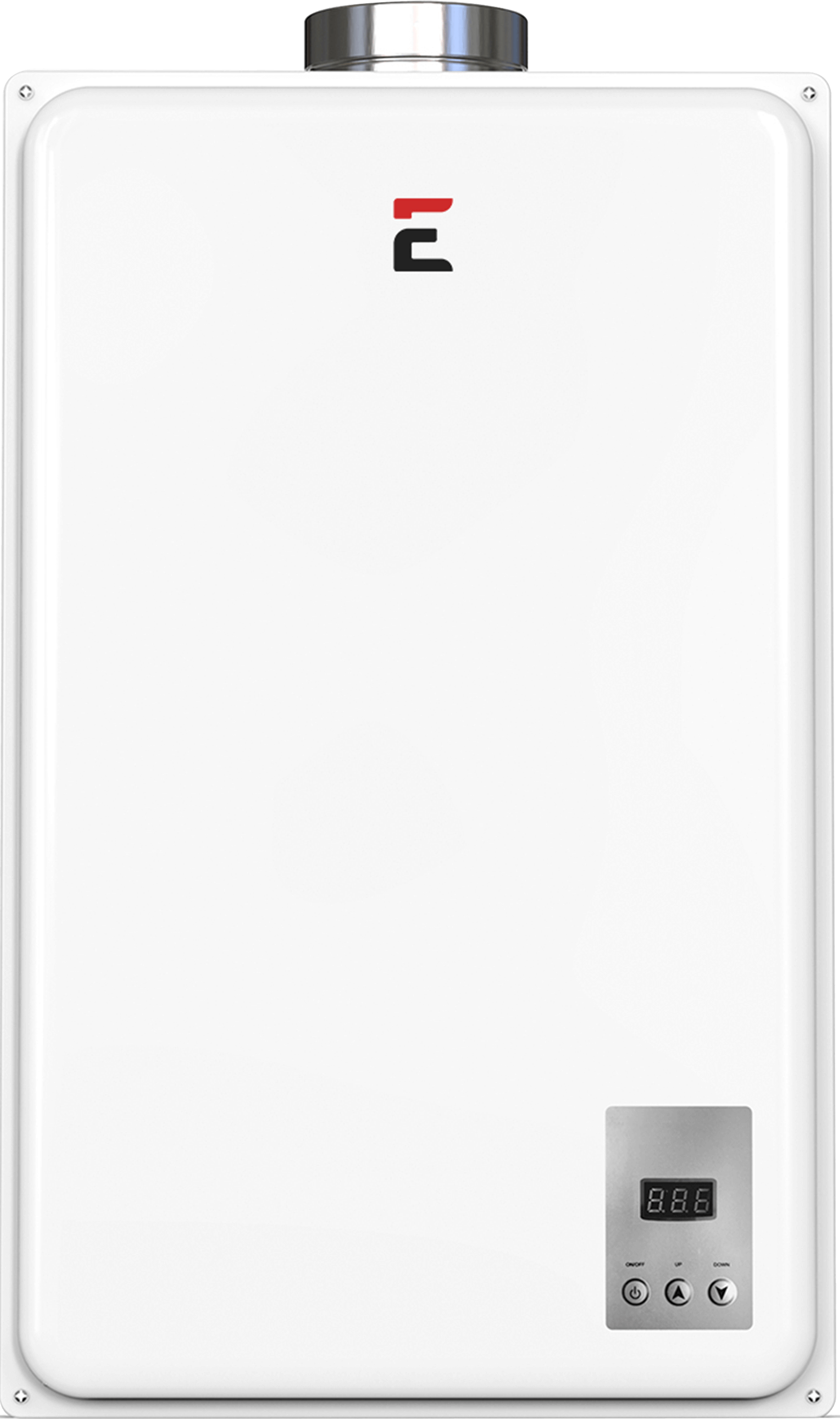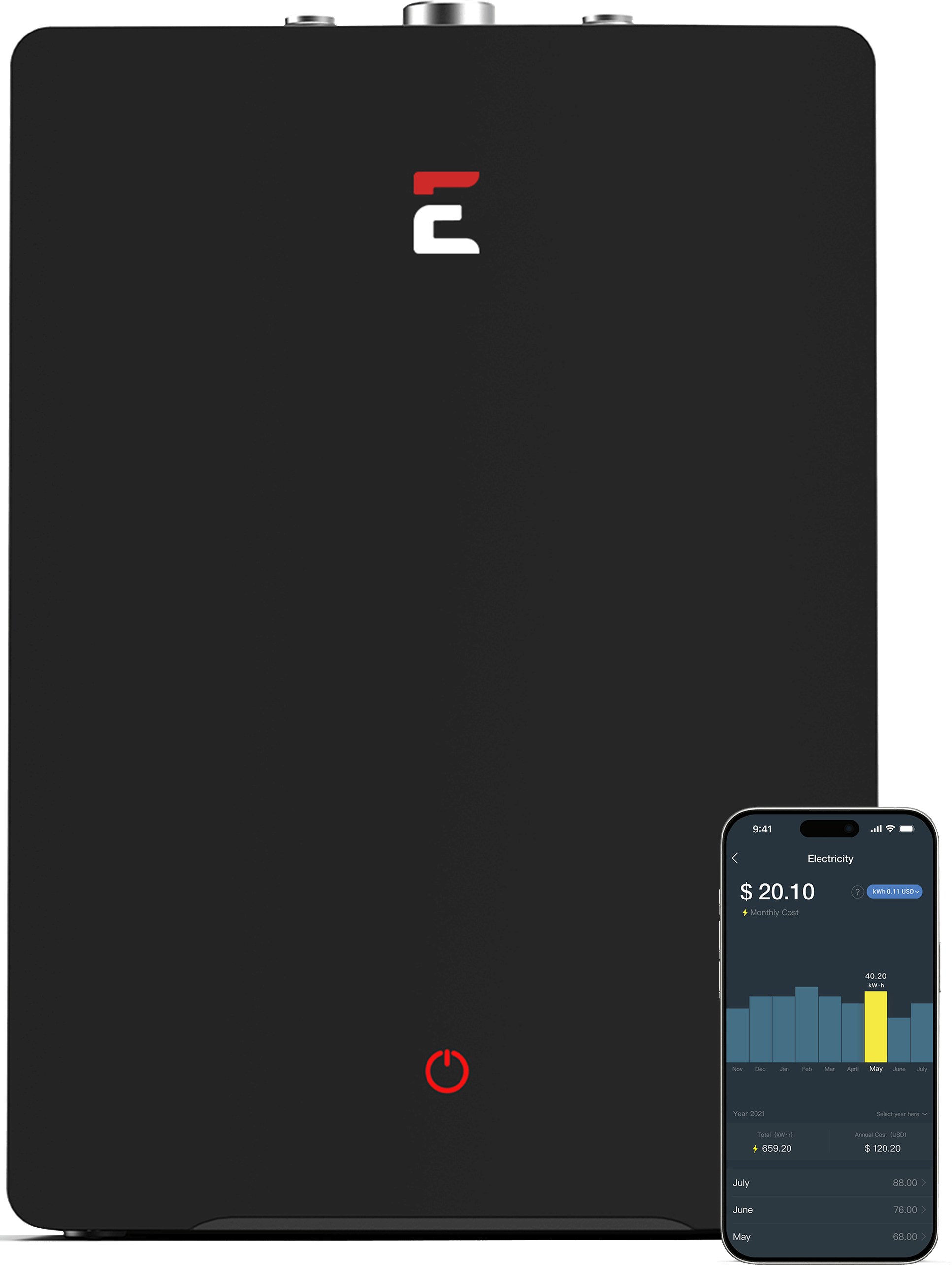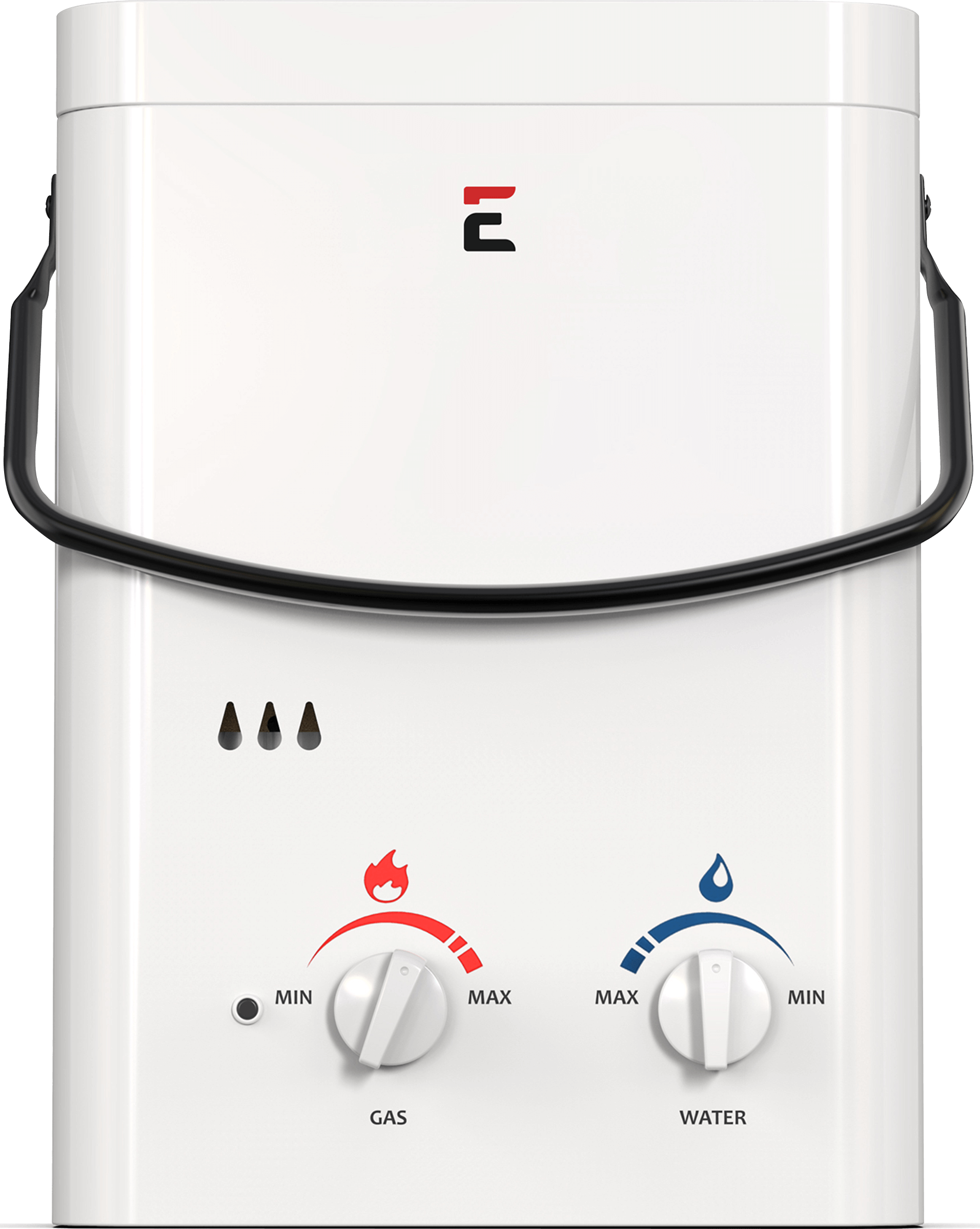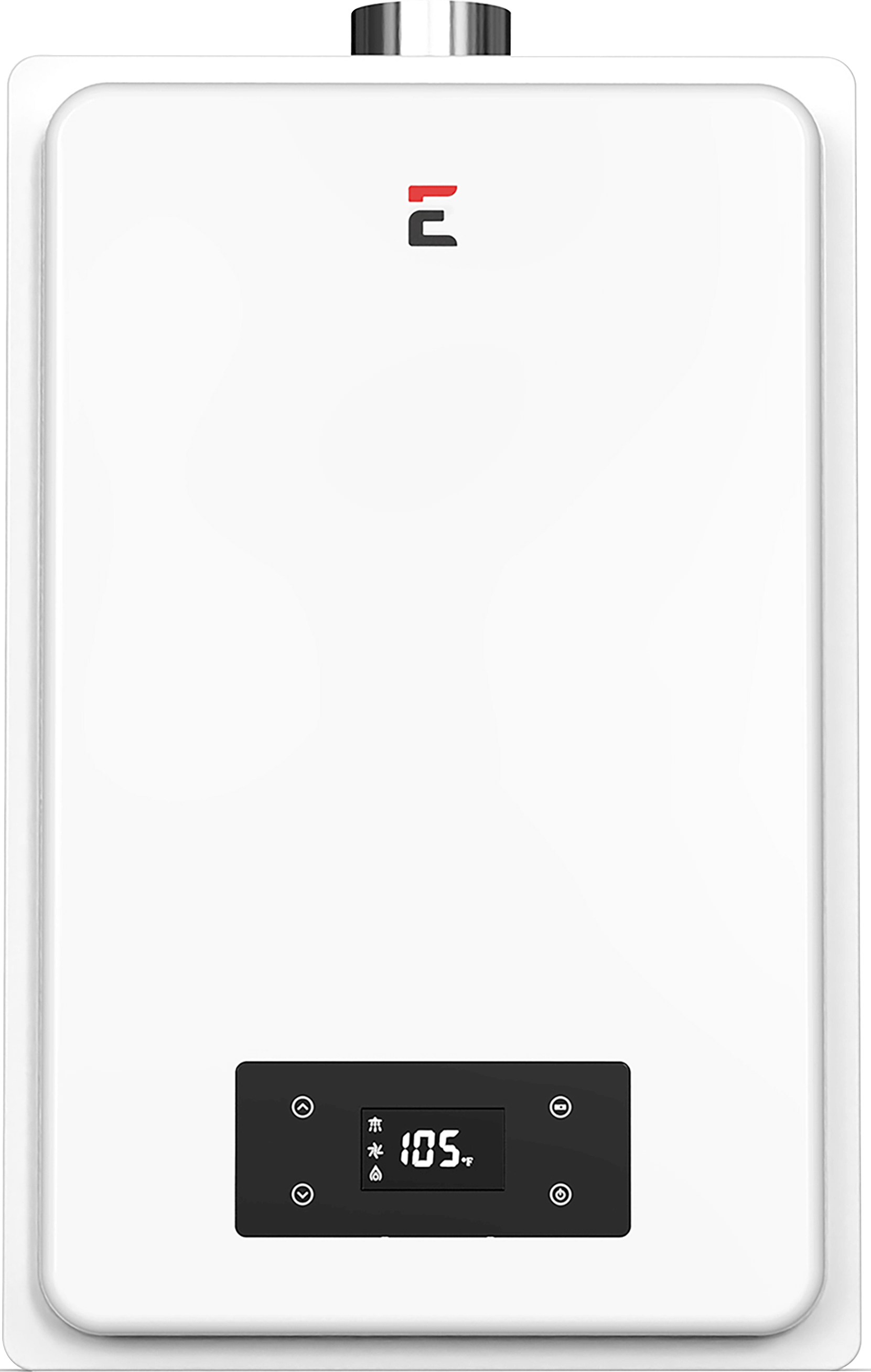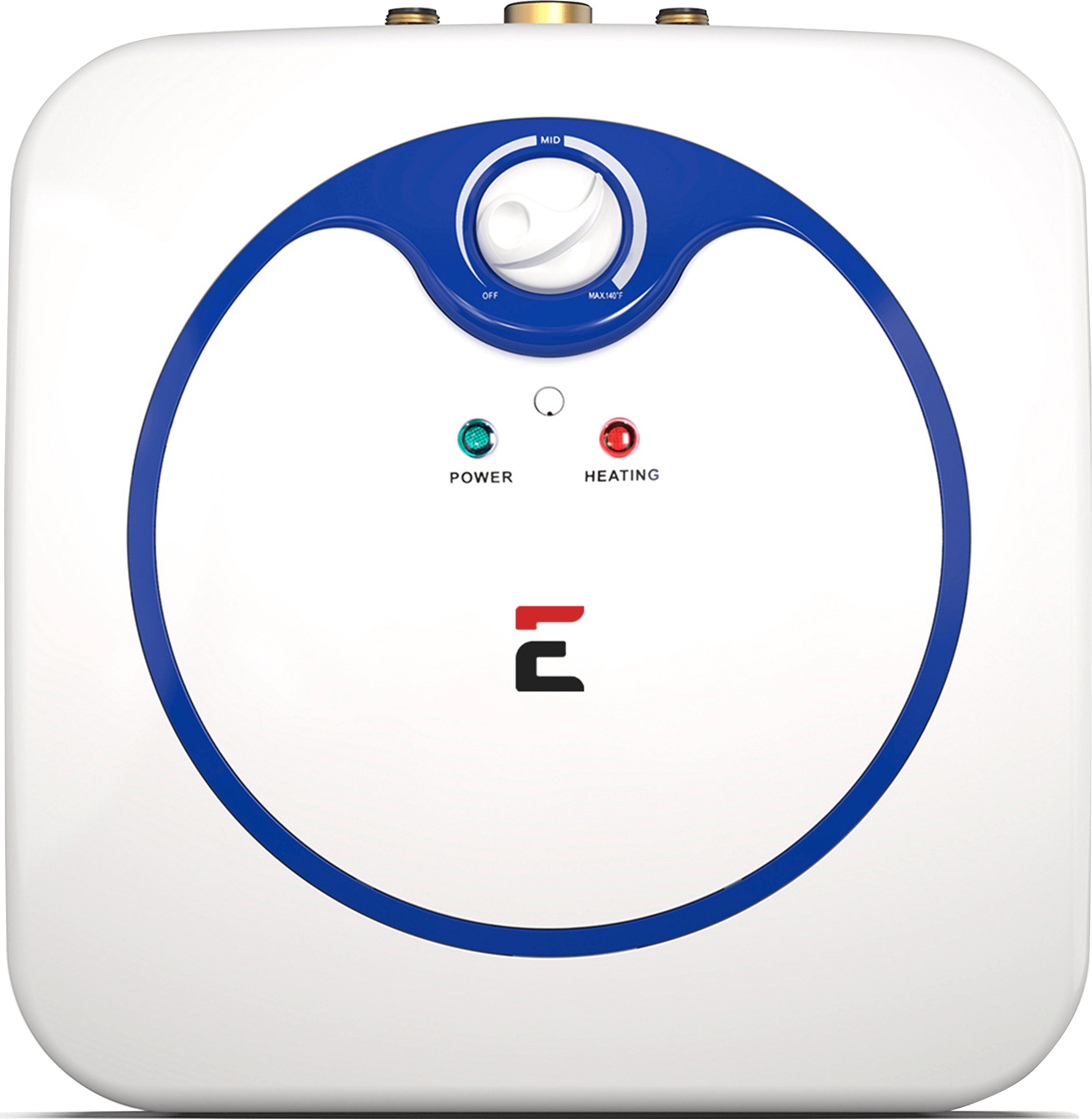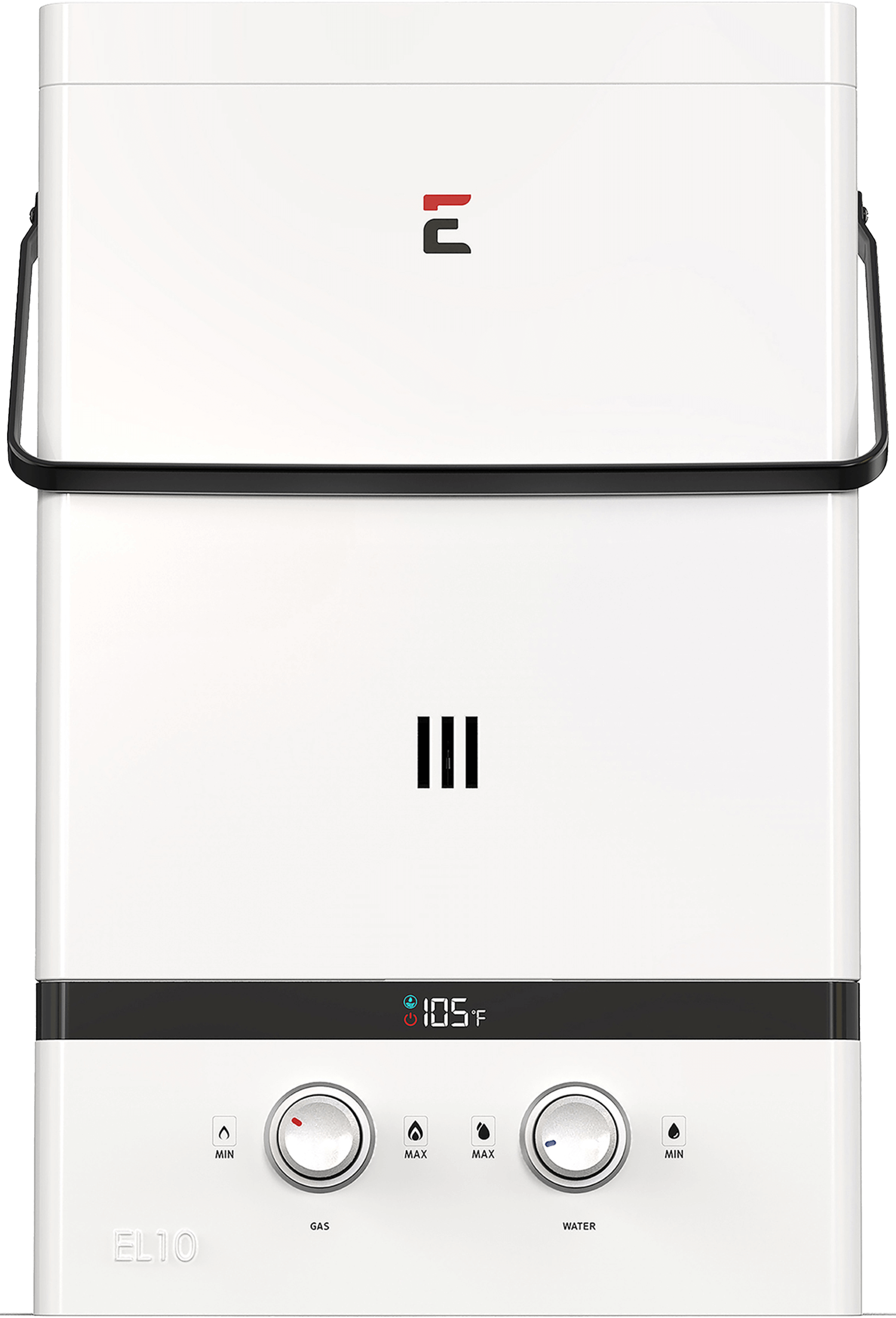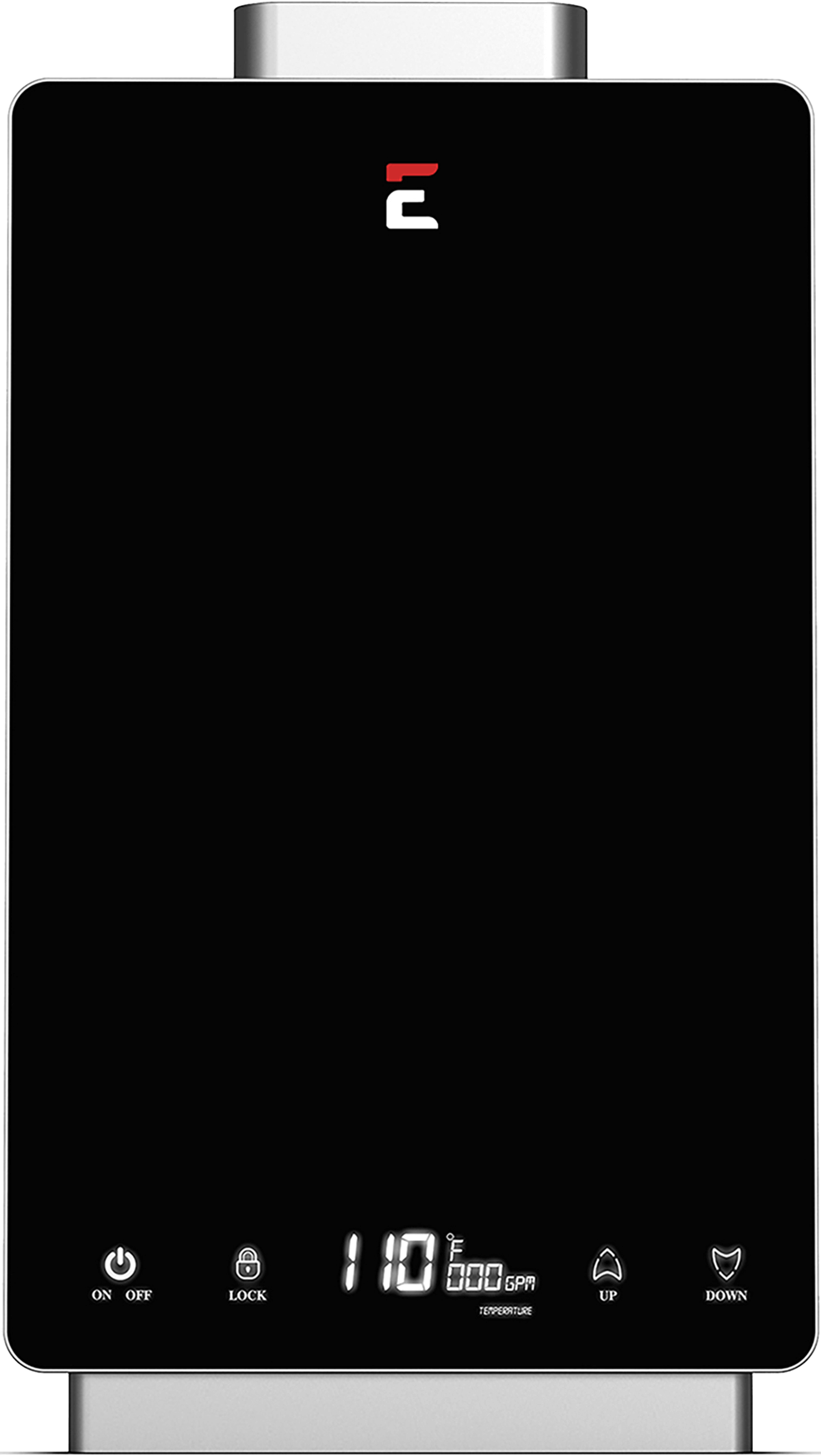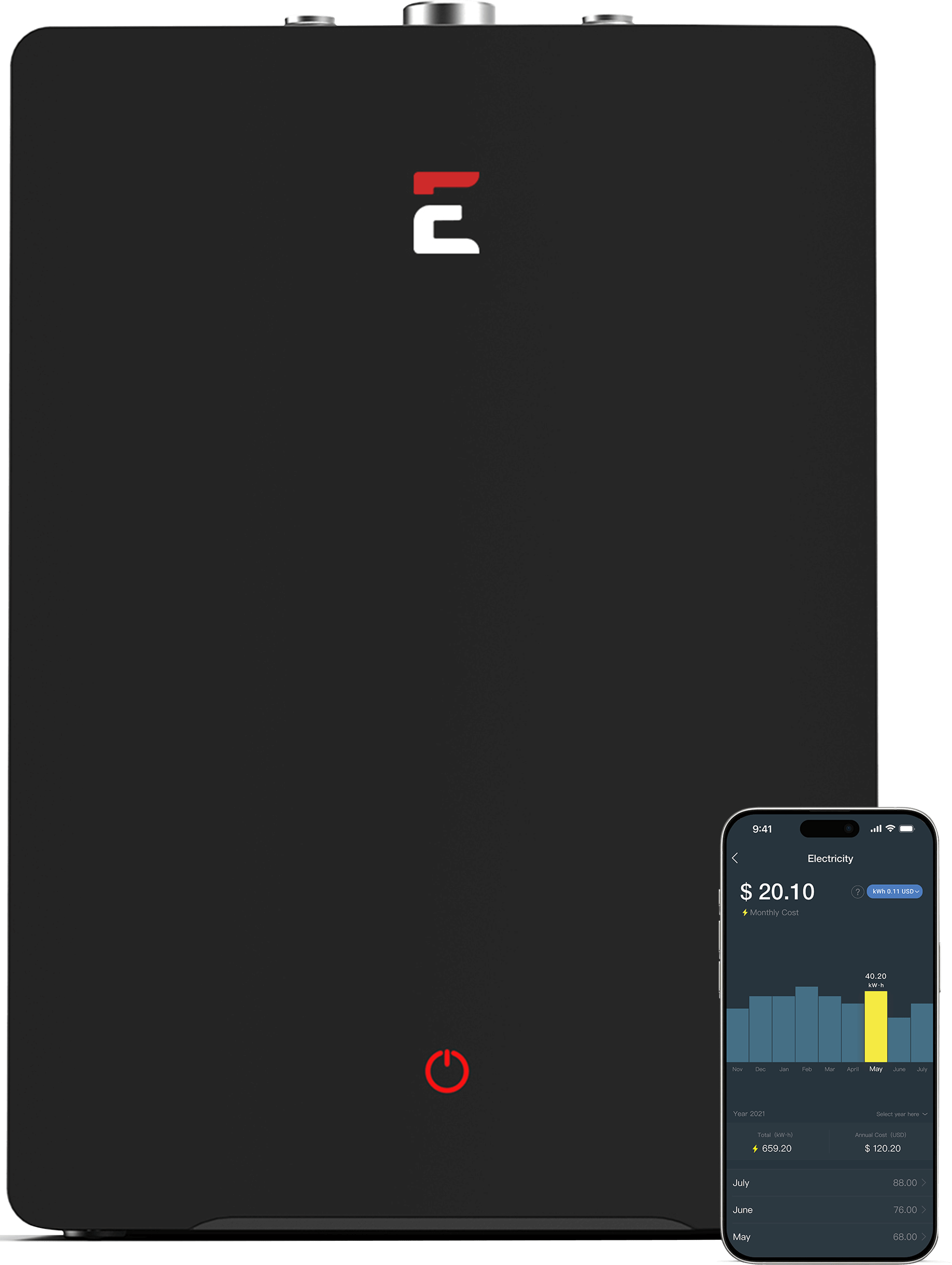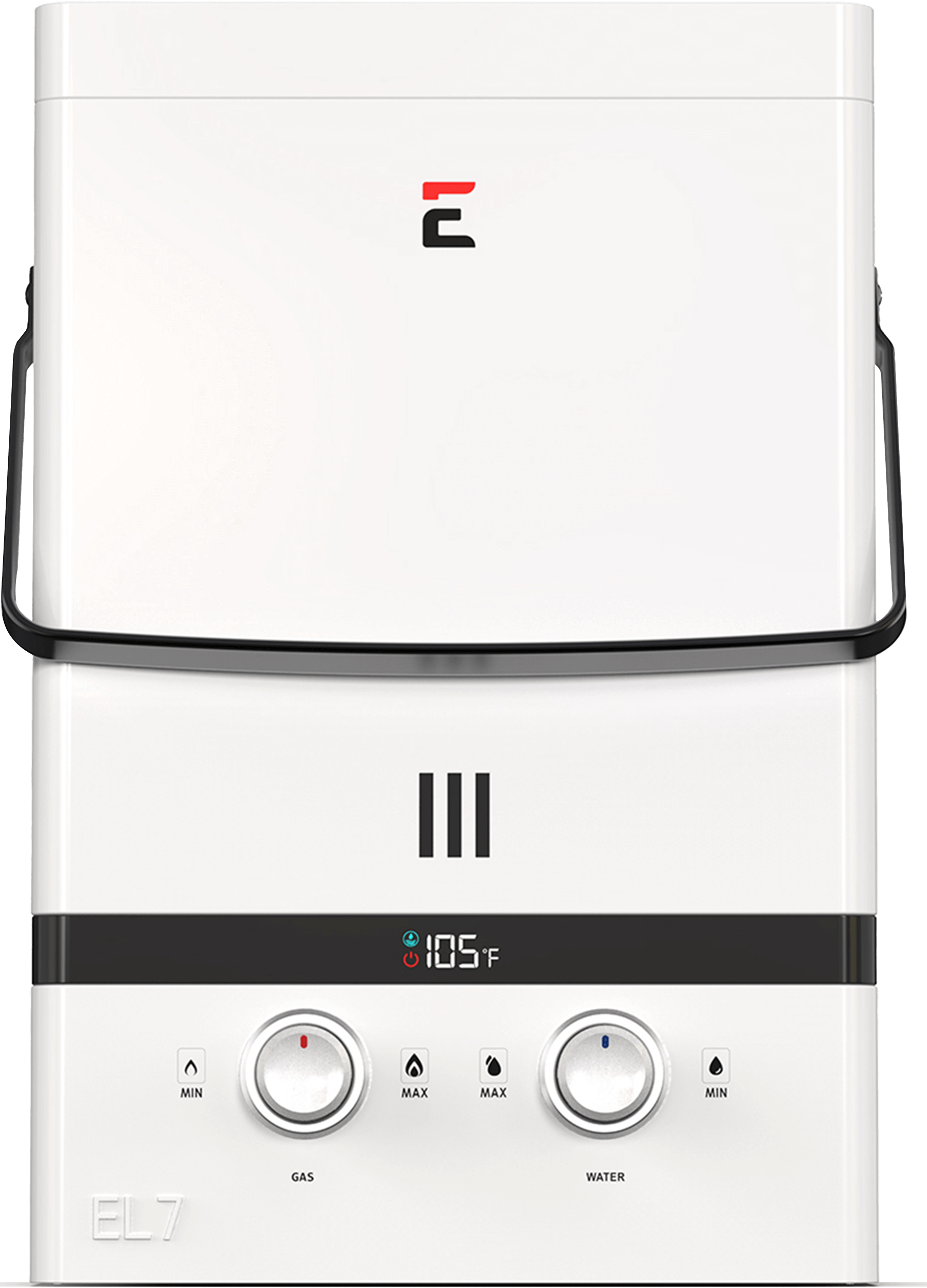Smart Home Questions? We've Got Answers.
How Much Does a Smart Water Heater Save?
A smart water heater can significantly impact energy consumption and utility bills by optimizing water heating processes based on usage patterns and preferences. By utilizing advanced features such as scheduling, remote control, and energy usage monitoring, smart home water heaters ensure efficient operation tailored to the household's needs. These smart water heaters can adapt heating schedules to times of peak and off-peak energy rates, maximizing savings by avoiding unnecessary heating during expensive periods. Additionally, their ability to learn usage patterns allows for precise temperature adjustments, preventing energy waste and ensuring hot water is available when needed, ultimately translating into tangible cost savings for homeowners.
The importance of understanding the potential savings from a smart water heater lies in its dual benefits of cost-efficiency and sustainability. As energy costs continue to rise and environmental concerns grow, optimizing energy usage becomes paramount. Smart mini electric water heaters and smart tankless water heaters offer a practical solution by reducing energy consumption without sacrificing comfort. Moreover, by lowering energy demand, they contribute to a greener environment by reducing carbon emissions associated with traditional water heating methods. Therefore, assessing the savings potential of a smart water heater not only impacts household budgets positively but also aligns with broader efforts to promote energy efficiency and sustainability for a better future.
Smart water heaters offer a compelling solution for consumers seeking to reduce their energy bills while maintaining comfort and convenience. Studies have shown that switching to a smart water heater can result in significant savings, with potential reductions in energy consumption ranging from 10% to 30% compared to conventional models. By leveraging advanced features such as programmable schedules, remote access, and voice control, smart mini electric water heaters and smart tankless water heaters optimize heating cycles to align with household usage patterns, minimizing energy waste. Additionally, smart water heaters can take advantage of off-peak electricity rates, further enhancing cost savings. With the average household spending a significant portion of its energy budget on heating water, investing in a smart water heater can yield substantial long-term savings while promoting environmental sustainability through reduced energy consumption and carbon emissions.
How Does a Smart Home Water Heater Work?
A smart home water heater operates through a combination of advanced technology and connectivity, revolutionizing how households manage their hot water supply. Through connectivity features like Wi-Fi and Bluetooth, users can remotely control and monitor their water heaters via smartphone apps or voice commands, allowing for real-time adjustments and access to usage data. At its core, a smart water heater is seamlessly integrated with the Eccotemp Smart App and is fully compatible with Amazon Alexa and Google Assistant. This integration enables users to effortlessly adjust temperature settings, monitor energy usage, and receive timely maintenance alerts from anywhere with an internet connection, all through their preferred device, such as a phone or tablet. Through machine learning algorithms, the smart water heater can analyze historical usage data to anticipate hot water demand, ensuring that the smart water heater is heated efficiently and ready when needed. Through this integration, smart water heaters provide unparalleled convenience and control to the consumer over their hot water systems.
Understanding how a smart home water heater works is crucial for homeowners looking to upgrade their heating systems for several reasons. Firstly, it empowers consumers to make informed decisions about their energy usage and expenditure. By grasping the technology behind smart water heaters, users can leverage their features effectively to maximize energy savings and optimize comfort. Secondly, awareness of the inner workings of these water heaters fosters a sense of confidence and competence in managing household utilities. With the ability to monitor and control their smart water heater remotely, homeowners gain peace of mind knowing that they can address any concerns or adjustments promptly, whether they are at home or away. Ultimately, embracing smart home water heater technology enhances efficiency and convenience and aligns with broader efforts to promote sustainable living and reduce environmental impact.
Are Smart Hot Water Heaters Worth It?
Investing in a smart hot water heater can indeed be worth it for numerous reasons. Firstly, these innovative appliances offer unparalleled convenience and control over your hot water system. With features like remote monitoring and control, programmable schedules, and learning algorithms, smart hot water heaters adapt to your household's usage patterns, ensuring hot water is available when needed while minimizing energy waste during idle time. This level of customization not only enhances comfort but also translates into tangible cost savings over time, as you avoid heating water unnecessarily and take advantage of off-peak energy rates. Additionally, the ability to monitor energy usage in real time allows for better insight into consumption habits, empowering homeowners to make informed decisions about their energy usage and potentially identify areas for further efficiency improvements.
Moreover, the environmental benefits of smart hot water heaters further justify their worth. By reducing energy consumption and minimizing carbon emissions associated with water heating, these devices contribute to a greener and more sustainable future. As climate change continues to be a pressing global issue, every effort to reduce energy usage and mitigate environmental impacts counts. Smart water heaters offer homeowners a practical way to make their households eco-friendly without sacrificing comfort or convenience. Additionally, with the increasing availability of rebates and incentives for energy-efficient appliances, the initial investment in a smart hot water heater can be offset, making it an even more attractive option for environmentally conscious consumers. Overall, the combination of energy savings, convenience, and environmental benefits makes smart water heaters a worthwhile investment for homeowners seeking to upgrade their water heating systems.
How Do I Install a Smart Tankless Water Heater?
Installing a smart tankless water heater involves several steps that should be followed carefully to ensure proper installation and functionality:
Step-by-Step Installation Process:
- Choose a Suitable Location:
- Select a location near existing gas or electrical connections with proper ventilation and access to water supply lines.
- Ensure the chosen location can support the weight of the water heater and provide adequate clearance for maintenance.
- Mount the New Water Heater:
- Use the provided brackets to securely mount the smart tankless water heater to the wall.
- Ensure the water heater is level and properly supported to prevent damage or instability.
- Connect Water and Gas or Electrical Lines:
- Install appropriate fittings and seals to connect the water supply lines to the water heater.
- Connect the gas line or electrical wiring to the water heater, following the manufacturer's instructions and local building codes.
- Test for Functionality and Safety:
- Turn on the water and gas or electricity supply to the water heater.
- Check for any leaks in the water or gas lines and repair them as needed.
- Verify that the water heater ignites and heats water properly.
- Set Up Smart Features:
- Follow the manufacturer's instructions to set up any smart features, such as Wi-Fi connectivity and remote access.
- Download and install any necessary apps to monitor and control the water heater from a smartphone or other device.
Importance: The installation of a smart tankless water heater holds immense importance, as it directly impacts functionality, safety, and efficiency. Ensuring correct installation procedures provided by the manufacturer are followed meticulously not only guarantees the system's proper operation but also minimizes potential risks associated with leaks, malfunctions, or other issues that could compromise the household's safety and comfort. Moreover, a properly installed smart water heater maximizes the performance of its advanced features, such as remote monitoring and control capabilities. This enables homeowners to fully leverage these functionalities, enhancing convenience and providing peace of mind by allowing them to monitor and manage their water heating system from anywhere.
Furthermore, investing time and effort into the installation process yields long-term benefits for homeowners. By adhering to installation guidelines diligently, homeowners can enjoy the advantages of a reliable and energy-efficient water heating system. The efficient operation of a smart tankless water heater not only reduces energy consumption but also translates into cost savings over time. Additionally, the consistent and reliable performance of the system ensures an uninterrupted hot water supply, contributing to increased comfort and convenience for household members. Therefore, prioritizing proper installation procedures for smart tankless water heaters is essential, as it paves the way for long-term savings, enhanced comfort, and peace of mind for homeowners.
What Size Tankless Hot Water Heater Do I Need?
Determining the right size tankless hot water heater for your household involves taking into account various factors that collectively contribute to meeting your hot water demands efficiently and effectively. One of the primary considerations is the number and type of hot water fixtures in your home, as each fixture contributes to the overall hot water usage. From showers to sink faucets and washing machines, each appliance and fixture has its own flow rate, measured in gallons per minute (GPM), which must be factored into the equation.
To begin the sizing process, conduct a comprehensive inventory of all the fixtures in your home that require hot water. Assess the flow rates of each fixture, considering typical usage scenarios and peak demand periods. For instance, a standard shower may have a flow rate of 2.5 GPM, a wash machine may be 3 GPM, a dishwasher 1.5 GPM, and a kitchen faucet 1.5 GPM. By compiling this information, you can calculate the total GPM demand for your household during simultaneous usage, providing a baseline for selecting an appropriately sized tankless water heater.
In addition to fixture flow rates, it's crucial to evaluate your household's hot water usage patterns and habits. Consider factors such as the number of occupants in your home, their bathing routines, and the frequency of hot water usage throughout the day. Understanding your household's hot water consumption patterns enables you to anticipate peak demand periods and select a tankless water heater with a capacity that can comfortably accommodate these fluctuations.
Furthermore, take into account the temperature rise required to heat the incoming cold water to your desired hot water temperature. The temperature rise, measured in degrees Fahrenheit, is determined by the difference between the groundwater temperature and the desired hot water temperature at the tap. In regions with colder groundwater temperatures, a higher temperature rise is necessary to achieve the desired level of hot water comfort.
For mid-size homes, tiny homes, and apartments or townhomes with a hot water demand ranging from 4 to 6 gallons per minute (GPM), we recommend these mid-size home tankless water heaters.
On the other hand, for larger residences such as whole homes with a higher hot water demand averaging between 6.5 to 7.0 GPM, selecting a tankless gas water heater with a correspondingly higher flow rate is essential. Here are the recommended whole home tankless water heaters.
Ultimately, the goal is to choose a tankless gas water heater with a flow rate that aligns with your household's hot water demand while providing ample capacity to meet current and future needs. By conducting a thorough assessment of fixture flow rates, hot water usage patterns, temperature rise requirements, and potential future changes, you can confidently select the ideal size gas tankless water heater to optimize comfort, efficiency, and performance in your home.
What Are the Benefits of Smart Water Heater Control?
Smart water heater control offers a range of benefits to consumers, revolutionizing how they manage their hot water usage. With the ability to adjust settings remotely and access real-time data, smart water heater control enhances convenience, efficiency, and cost savings for consumers. Here are some key benefits:
- Remote Access and Control:
- Allows users to adjust water heater settings remotely via smartphone apps or connected devices.
- It enables turning the water heater on or off, adjusting temperature settings, and scheduling heating cycles from anywhere, providing unparalleled flexibility and convenience.
- Optimized Energy Usage:
- Smart water heater control systems analyze usage patterns and adjust heating cycles accordingly, optimizing energy usage.
- Users can set customized schedules based on their daily routines, ensuring hot water is available when needed while minimizing energy waste during idle periods.
- Real-time Monitoring and Insights:
- Provides users with real-time monitoring of hot water usage, allowing them to track consumption patterns and identify opportunities for efficiency improvements.
- Access to usage data empowers consumers to make informed decisions about their hot water usage, leading to reduced waste and increased energy savings over time.
- Predictive Maintenance Alerts:
- Some smart water heater control systems offer predictive maintenance alerts, notifying users of potential issues before they escalate.
- Early detection of problems allows for timely maintenance and repairs, minimizing downtime and extending the lifespan of the water heater, ultimately reducing maintenance costs.
- Integration with Smart Home Ecosystem:
- Smart water heater control systems can integrate with other smart home devices and ecosystems, enabling seamless automation and coordination.
- Integration with platforms like Amazon Alexa or Google Assistant allows for voice control and integration with broader smart home automation routines, enhancing overall convenience and the user experience.
 Weekly Deals
Weekly Deals
 Water Heaters
Water Heaters
 Accessories
Accessories
 Installation
Installation
 Parts
Parts
 Protection Plans
Protection Plans
 Final Sale
Final Sale







